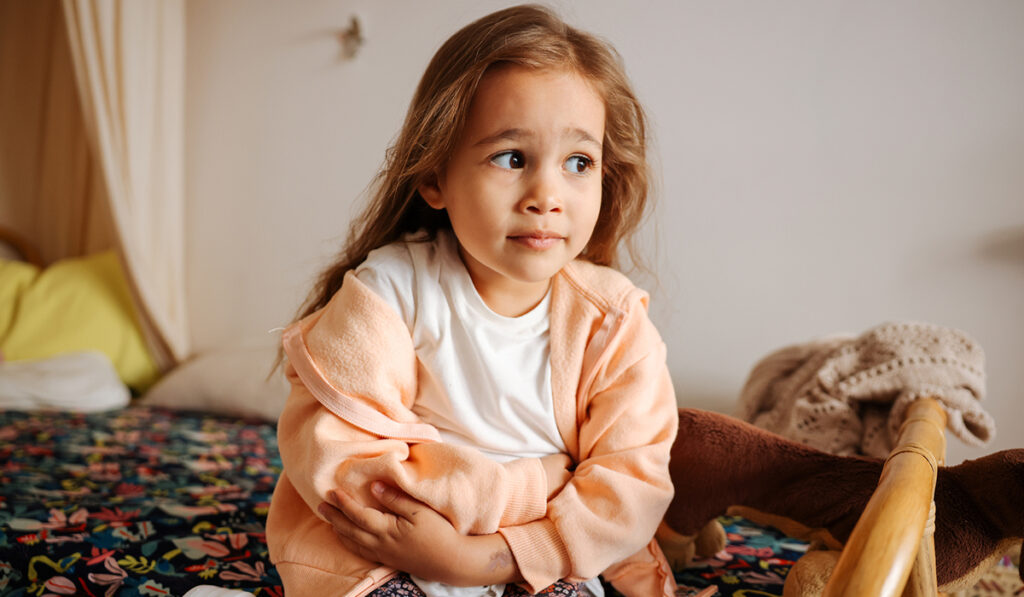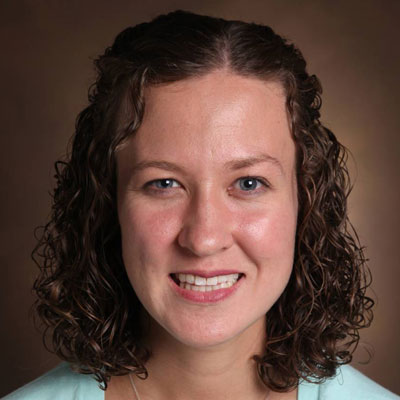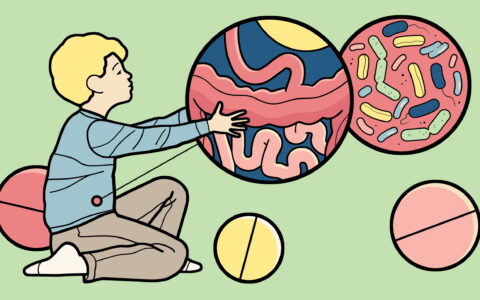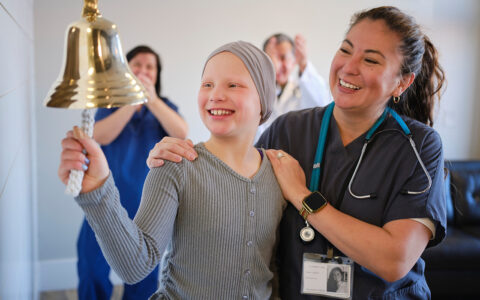Aptly named, the Clostridioides difficile (C. difficile) bacteria is hard to kill and hard to cleanse from the hospital environment. Recent stewardship efforts have driven a small but significant decline in cases.
Pediatric gastroenterologist Maribeth Nicholson, M.D., has focused much of her career on finding ways to help children win the fight against C. difficile infection (CDI). Her research has led to a better understanding of diagnostic hurdles and best practices for treating children, especially those with comorbid conditions or recurrent infections.
“Children with CDI do better than adults when we look at severity, but the rare complications can be a struggle to control, and recurrence rates are still high.”
“Children with CDI do better than adults when we look at severity, but the rare complications can be a struggle to control, and recurrence rates are still high,” Nicholson said. “This is particularly true among children with IBD or cancer, or who are otherwise immunocompromised.”
In 2021, Nicholson and her colleagues described the inadequacy of current testing to discern C. difficile colonization versus infection. In 2022, her research team published findings on successful fecal microbiota transplant (FMT) in infected children with inflammatory bowel disease (IBD). This was followed by a retrospective study using a robust database that described the epidemiology, testing and treatment of hospitalized pediatric patients with CDI. Most recently, Nicholson and her team published a report on the use of FMT in 42 immunocompromised children.
Infection, Treatment and Recurrence
C. difficile bacteria produce spores that have become prevalent in hospital environments but also can be ingested through contact outside the hospital setting. While a healthy microbiome typically resists colonization, Nicholson says about 17 percent of hospitalized patients will be colonized with C. difficile. A portion of these will remain asymptomatic, while others will present abdominal pain and diarrhea due to intestinal damage from the toxins.
“The colonic microbiome is like a garden,” Nicholson said. “When it is healthy, it is densely populated with plants and shrubbery that don’t leave room for weeds to establish themselves. But through antibiotics, immunosuppression, or an underlying disease state, those healthy plants are plucked out of the microbiome, leaving space for opportunistic C. difficile to take root and grow.”
About 20 to 30 percent of children who have a single CDI will have a recurrence of symptoms, a remarkably high rate for an infectious disease. These recurrences typically warrant a second treatment with a broad-spectrum antibiotic like vancomycin, further culling the microbiome of its healthy “plants.”
Testing Conundrum
One conundrum facing diagnosticians is the absence of tests that distinguish between colonization and infection. The current two-step testing process starts with a highly sensitive test, such as a nucleic acid amplification-based (NAAT) test to determine the presence of C. difficile. If positive, a more specific toxin enzyme immunoassay follows, with the aim of discerning the presence of infection.
“We need to find a better way to confirm infection to protect those patients from unnecessary further depletion of their healthy microbiome, and appropriately treat the patients who most need it.”
Nicholson led a study demonstrating that these tests were unreliable in differentiating infection versus colonization, or predicting disease severity in symptomatic pediatric patients.
“That means that clinicians may be treating patients such as those with IBD, whose symptoms can be due to an unrelated flare, with antibiotics, or not treating patients who are toxin-negative, but should receive therapy for symptomatic CDI.
“We need to find a better way to confirm infection to protect those patients from unnecessary further depletion of their healthy microbiome, and appropriately treat the patients who most need it,” Nicholson said.
Fecal Microbiota Transplant
Fecal microbiota transplantation (FMT), while still deemed investigational by the FDA, is proving successful for refractory cases. FMT works by populating the colon with healthy microbes, filling the spaces that might otherwise be colonized by harmful bacteria.
Nicholson developed the pediatric FMT program at Vanderbilt based largely on research she has led. In 2019, she was first author on a study on FMT for all-cause CDI in children, finding 81-percent and 86.6-percent success rates after a first and repeat FMT, respectively. Her 2022 study looked at FMT in the subpopulation of children with IBD, finding no difference in efficacy between children with or without IBD.
Her team’s newest manuscript on FMT in immunocompromised patients studied children across multiple centers, mostly with organ transplantation, cancer, or a primary immunodeficiency. Despite serious adverse events likely related to FMT in about 10 percent of children, there were no deaths or infections with multi-drug resistant organisms during follow-up, and all patients fully recovered.
“Still, screening for disease in the stool specimens used for FMT is a constant challenge, with new pathogens, like the SARS-CoV-2 and monkeypox viruses, continuing to expand the list,” Nicholson said. “We use a stool bank to optimize safety but, nationwide, there has been a reported case of an individual dying from an FMT-associated infection.”
She says efforts are underway to develop grafts, known as live biotherapeutics and composed of human microbes found in stool, that are lab-developed as pure strains that are then combined to make a biosynthetic product.
“The path forward integrates the use of improved diagnostics, narrow spectrum antibiotics, live biotherapeutics, and continued antibiotic stewardship to improve how we care for children with CDI,” Nicholson said.






